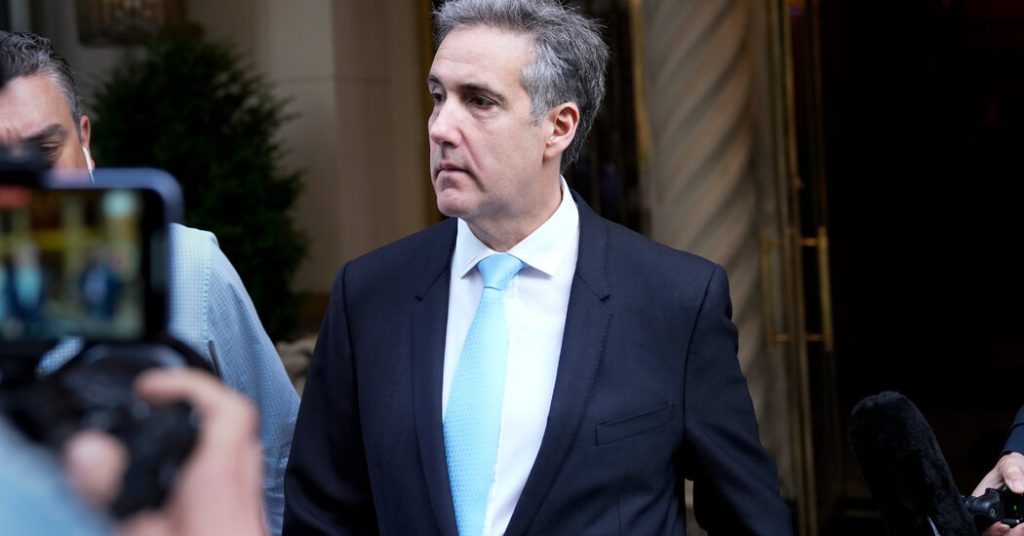Just over two weeks into Donald J. Trump’s presidency, he and his personal lawyer, Michael D. Cohen, had a private conversation in the Oval Office about money. Mr. Cohen testified that Mr. Trump asked if he was okay and needed money, volunteering that a check would be forthcoming. The monthly checks were said to be part of a legal retainer agreement, but were actually reimbursements for hush money Mr. Cohen paid to silence a porn star’s story of sex with Mr. Trump. Mr. Cohen testified that Mr. Trump was present when a plan to disguise the nature of the payments was devised in New York.
The testimony was a pivotal moment for prosecutors in Mr. Trump’s criminal trial, linking the former president to records at the center of the case. Mr. Trump denied the allegations and the sex, with his defense team attempting to discredit Mr. Cohen by questioning his credibility and suggesting he had a financial interest in attacking Mr. Trump. Despite their fractious relationship, Mr. Cohen said he decided not to lie for Mr. Trump anymore, leading to his testimony against the former president.
The trial against Mr. Trump involves hush money deals that Mr. Cohen helped arrange prior to the 2016 election, including payment to Stormy Daniels. Mr. Cohen testified to paying out of pocket for the hush money and being reimbursed by Mr. Trump once he took office. Mr. Trump faces multiple felony counts for falsifying business records related to the payments and the case hinges on whether he knowingly aided in these crimes.
While Mr. Cohen doesn’t make a perfect witness, having been personally involved in many questionable actions during his time working for Mr. Trump, his testimony offers a firsthand account of dealings with Mr. Trump. He detailed meetings where payments were discussed, including one in the Oval Office where Mr. Trump confirmed he would reimburse him. Prosecutors can argue that Mr. Trump broke the law even if he knew about falsified records and did not stop them. Mr. Cohen claimed he lied out of loyalty to Mr. Trump but has since changed his stance.
The falling out between Mr. Cohen and Mr. Trump began in 2018 when federal authorities began investigating Mr. Cohen. Their relationship deteriorated further when Mr. Trump distanced himself, leading Mr. Cohen to feel unsupported. This led to Mr. Cohen ultimately deciding to be loyal to his family, his country, and himself rather than Mr. Trump. Mr. Cohen’s guilty plea in 2018 to campaign-finance violations tied to the hush-money deals implicated Mr. Trump, revealing that he acted under his direction.
Mr. Cohen’s testimony, while seeking personal redemption, also served as a form of revenge against Mr. Trump. He expressed regret for his actions in the past and his downfall as a result, emphasizing that his moral compass was violated. Throughout the trial, Mr. Cohen remained composed under cross-examination, maintaining his composure even when facing pointed questions about his past praise of Mr. Trump. The case against Mr. Trump is the first criminal trial of an American president, centered around his involvement in hush money payments and falsified records.


